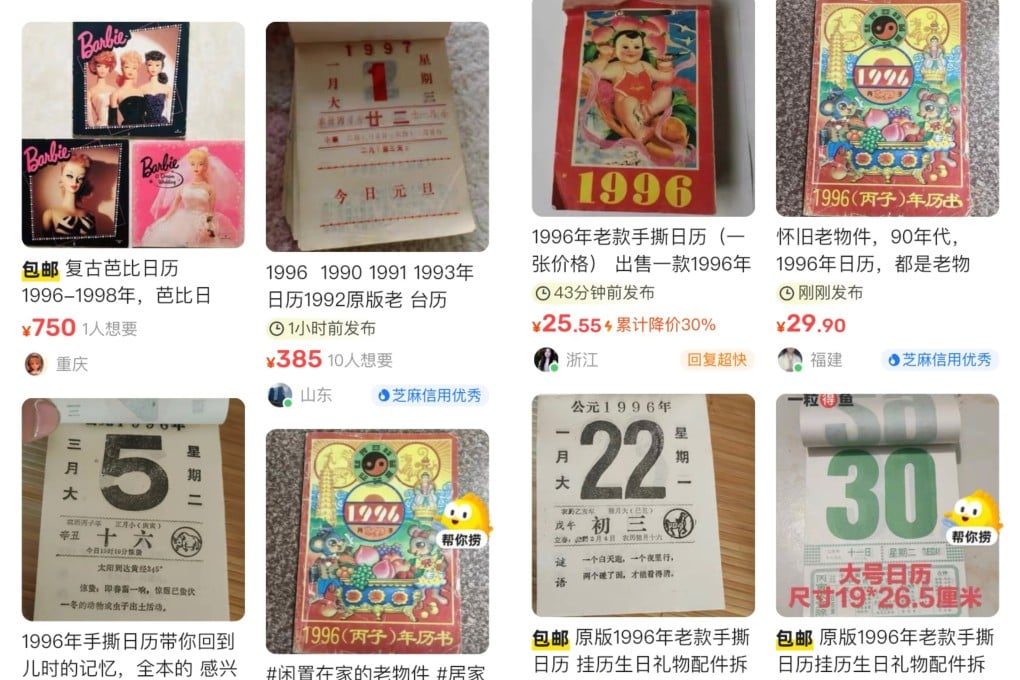Why are Chinese people buying calendars from 1996 in 2024?
- Though decades apart, both 1996 and 2024 are leap years that begin on a Monday, making their calendars a perfect match
- As 1990s nostalgia sweeps China, the vintage items are reminder of era when Beijing welcomed foreign influence in the economy, culture and fashion

Over the past week, searches for 1996 calendars on Xianyu rose 600 per cent and transactions were at an all-time high, according to Economic View, a media outlet owned by state-affiliated news agency China News Service.
“Since about New Year’s Day this year, the daily trading volume and inventory of 1996 vintage calendars have been trending higher, with the volume reaching a peak on January 9 when more than 400 people searched for the keyword ‘1996 calendar’ at the same time,” a Xianyu staff member told Economic View.
Some of the 1996 calendars are decorated with traditional Chinese motifs such as auspicious symbols and celestial beings. Others feature overseas pop culture idols, including Hong Kong celebrities and American and Japanese cartoon characters such as Mickey Mouse, Ultraman and Cardcaptor – remnants of an era when Beijing largely welcomed outside influence in the economy, culture and fashion.
Other vintage calendars for sale feature modern Chinese elements, such as images of Mao Zedong, pages from state-owned newspapers and pictures of the Beijing Guoan Football Club.